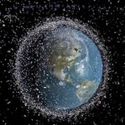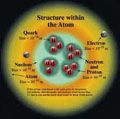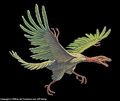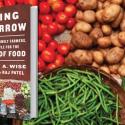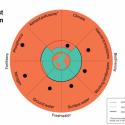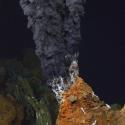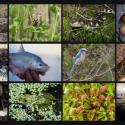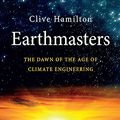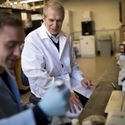Science Is Essential
Science touches so many aspects of modern life that it's hard to keep up. Through our programs and this website, Science for the Public provides up-to-date information about scientific innovations, discoveries, and issues that are shaping modern knowledge.
Coming Events
No events are scheduled for June
Recent Events
Space Debris Alert!: The Potential Impact on the Ozone Layer and Earth’s Climate
05/27/25 (rescheduled from April) Thousands of satellites orbit Earth. At the end of their missions, they drop into and burn up in the stratosphere, depositing ash that contains oxides and pollutants that are affecting both the ozone layer and the planet's climate. Atmospheric scientists are working to analyze the aerosols and their worrisome impact. Daniel Cziczo
The Brain-Computer-Interface Paradox
05-20-25 For individuals paralyzed by injury, stroke or ALS, brain-computer-interface (BCI) devices can enable movement and even speech. However, there are concerns: specifically, that such technology could be developed for mind control. Lukas Meier
Cancer Research: How It Works and Why It's Crucial Today
04/08/25 Numerous types of cancer are increasing today and scientists are trying to identify the causes. That's why cancer research is one of the most important concerns of modern science. We learn how the research is done and also why federal funding for this work is essential. Gerald Denis
Antimatter
Each particle has a opposite form, its anti-particle, a discovery that has had wide-ranging effects
Resistance to New Ideas
Many of the most important advances in scientific understanding were initially rejected or ignored.
Life: Evolution and Extinction
The long reign of bacteria, the eventual branching and diversification, symbiogenesis, the dramatic mass extinctions and resurgence of life...
Featured Items
The Battle for the Future of Food
06/11/24 WGBH Forum Network webinar. Industrial agriculture (“Big Ag”) is a major contributor to global warming, environmental destruction, and disruption of good farming traditions. There is a better way to feed the world without destroying the planet. Tim Wise
Addressing the Threat to Earth System Boundaries
09/12/23 The breaching of most of the Earth system boundaries (ESBs) is destroying the planet and the crisis must be addressed immediately. Solutions must include justice for those who suffer displacement, health and economic impacts of the crisis. Diana Liverman
Heads Up! Surprising Stats
Science for the Public is committed to improving public knowledge of science and public appreciation for the contributions of science to social progress.

They Didn't Believe It! The Atom
11/07/19 Science for the Public mini-series : They Didn't Believe It!
Brief stories about science discoveries that were very slow to be accepted
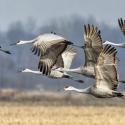
The Mystery of Animal Migration
09/17/24 How migratory creatures navigate so accurately to their seasonal destinations, sometimes thousands of miles away, is still often a mystery. What do scientists know, and what are they still trying to discover? Charles Walcott
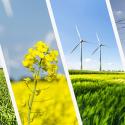
Cooler Smarter
06/28/12 A co-author of the new book from the Union of Concerned Scientists describes how individuals can substantially reduce their carbon footprints while creating a healthy lifestyle...Jeff Deyette

The Bionic Leaf: Clean Energy for All
08/02/22 A unique innovation based on photosynthesis, the bionic leaf can potentially produce energy and fuel inexpensively --and in a localized manner. Daniel Nocera
Today's Featured Contributors
Featured Author

David Toomey, Ph.D.
A writer who also teaches science-technical writing (as well as literature)
Featured Guest

Susanne Freidberg, PhD
One of the most prominent researchers on the impact of large-scale and global food production
As a world society, it seems clear that we have arrived at a point in our history when there must be a major increase in the capability of ordinary people to cope with the scientific and technological culture that is shaping their lives and the lives of their children.
—Leon Lederman, Nobel Laureate in physics

